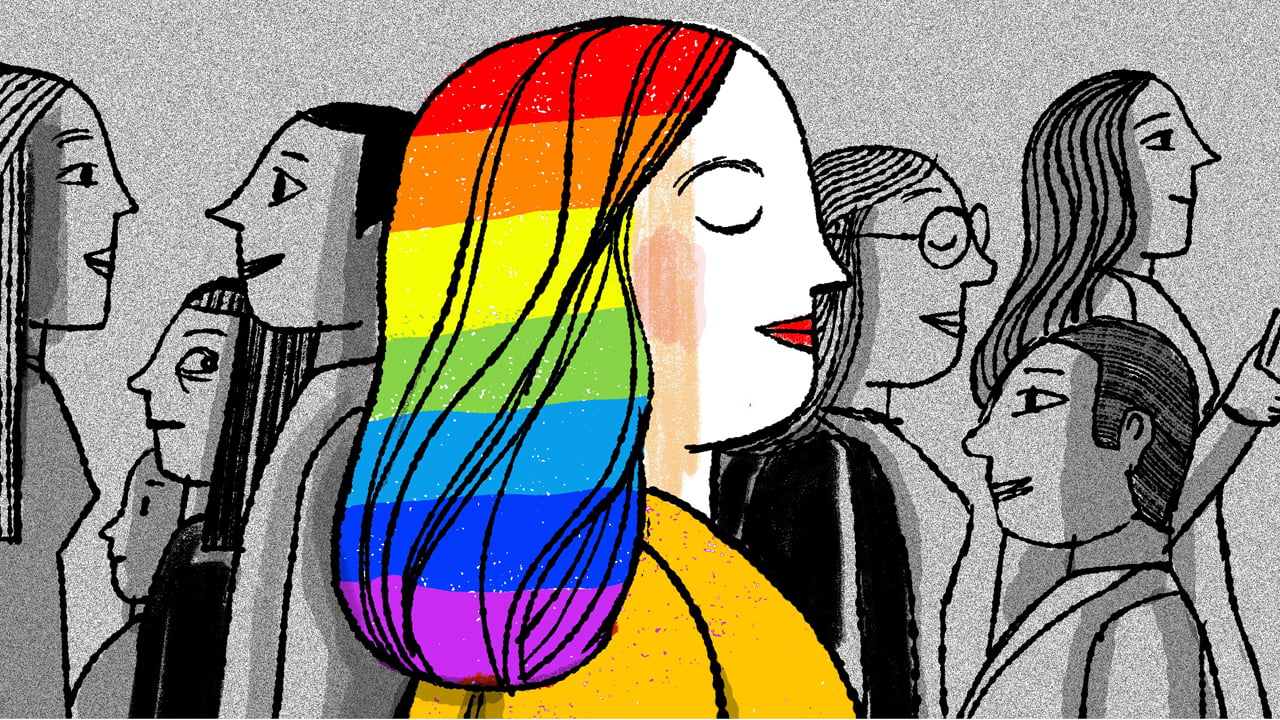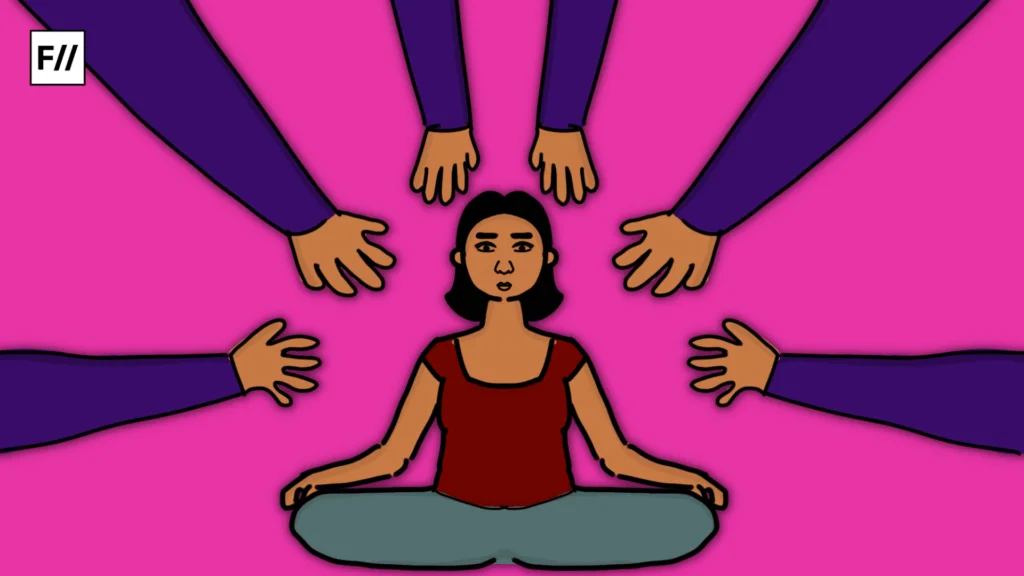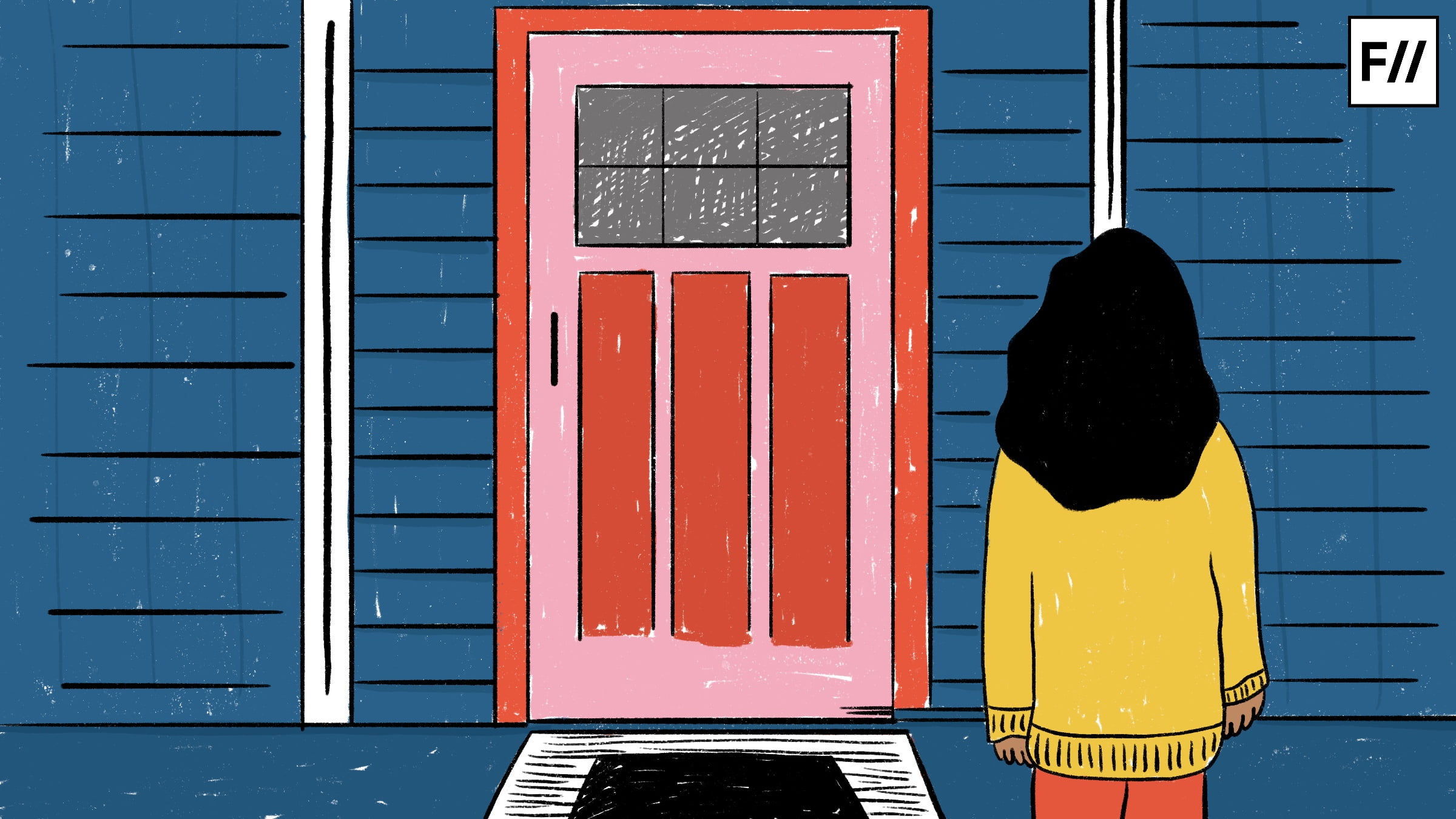The oldest Pride Walk in South East Asia, the Kolkata Pride Walk, gathered for its 17th edition, after a gap of two years. Amidst that serpentine phalanx of 3,000 or so vibrantly dressed folks, raising flags and posters was my mousy self, waving a placard borrowed from a friend. Walking my first Pride, a whole decade and a few odd years after coming out to myself.
I stumbled across my queerness in my twenties. There was no one grand moment when the light bulb struck, it was more of a gradual remembrance. From a fascination towards all things queer to my heart racing a little faster every time I crossed the prettiest girl in my class, to the defiant acknowledgement of my bisexuality in my close peer circles. It was a slow drip of an awakening.
Coming out to my friends was one thing, but reaching out to other queer folks was supremely intimidating. Only when I came across another bisexual AFAB person, I realized what was holding me back. I was afraid of not being believed. And sure enough, as my circle of bisexual friends increased I heard accounts of people telling them it was “a phase” or they “were not queer”.
Although the Pride parade has become such an icon of resistance and hope for the queer rights movement, the road to it may not be so linear. Especially for people on the bi and pan spectrum, the journey can be confusing and invalidating. Surveys suggest bisexual people make up the largest chunk of the LGBTQIA+ community, yet there is a systemic disappearance of our lived realities.
Also Read: Bisexuality Awareness Week: What In Means To Be Bisexual In India
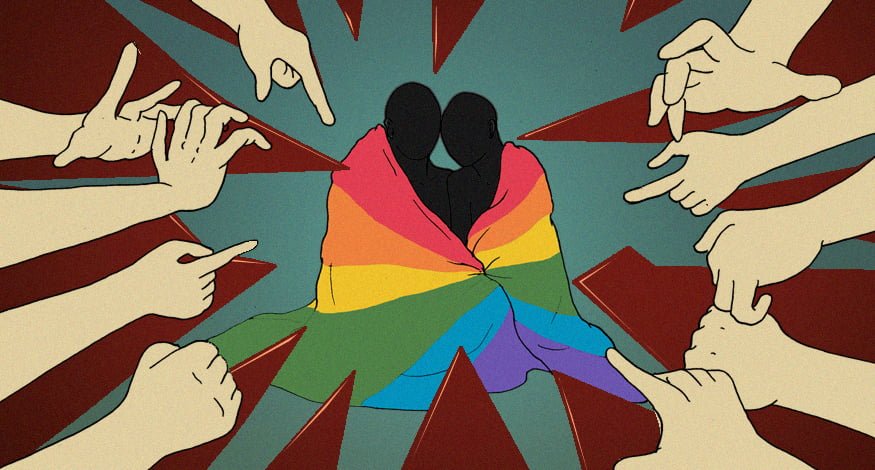
Bisexual people are often rendered invisible in and outside queer spaces, given that their sexuality is often assumed based on the gender of who they are with. This invisibility does in turn accord them with the privilege of ‘straight passing’—i.e. looking like a heterosexual person—but it is a double edged sword that Misty Gedlinske beautifully unpacks in her powerful TED TALK about bi erasure.
Bi erasure engenders negative stereotypes surrounding bi and pan folks; of being confused or untrustworthy or just simply greedy. This harms their confidence and often keeps them from coming out. Bisexual people who have not dated outside cisgender heterosexual folks are often accused of jumping onto the rainbow bandwagon. This anxiety around bi identities has often led celebrities who identify as bisexual to be accused of ‘queerbaiting’.
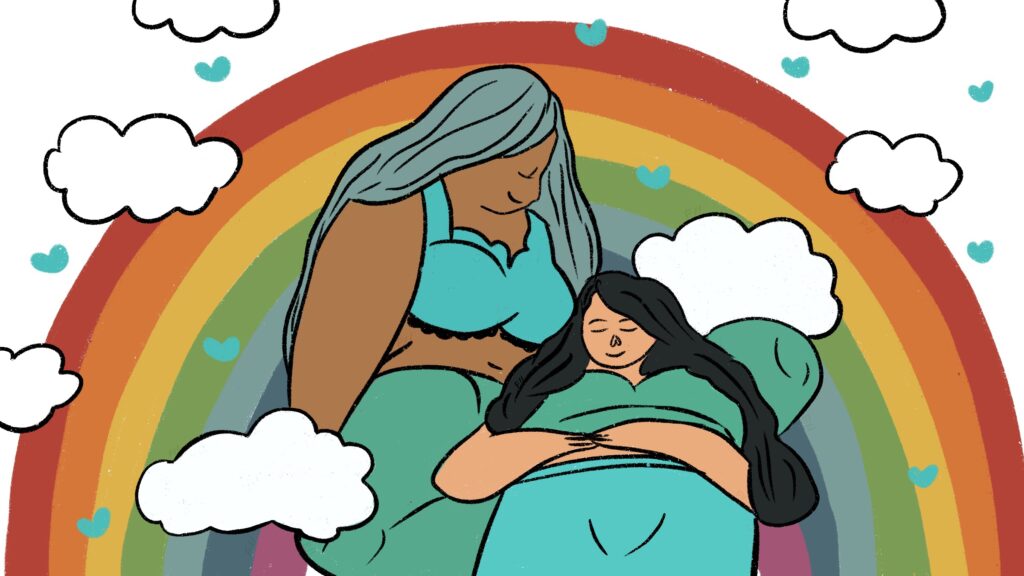
This constant need to perform their queerness and or risk being demonized for their sexuality leaves bi people more vulnerable to mental health conditions. Studies show that bi folks are often at a greater risk of struggling with depression, anxiety, substance abuse, and eating disorders among other things. Struggling to come to terms with my bisexuality has actively contributed to my lifelong impostor syndrome.
Also Read: What’s It Like Being Asexual In India | Asexuality Awareness Week
I remember feeling a sickening knot at the pit of my stomach, the night I was sending in my application to join a Queer Affirmative Counselling Practices workshop. It was organized by Sappho For Equality, one of the oldest queer collectives in our country. As a queer person who had recently trained to be a counsellor, I was excited to apply. Yet invariably as I was typing my introductory note, I couldn’t ignore the raspy voice buzzing inside my head, “Are you? Queer? What do you have to show for it?”
This was not new, every time I came close to getting involved with my local queer community, my self-doubt would break out in hives. Because inside my head, I had built up this narrative that I would complete the final rite of passage to earn my queerness, the day I marched in my first Pride Parade. However, every time I thought of participating, I worried I’d be mistaken for an ally. All my life I felt not quite myself in heteronormative spaces, I was terrified of discovering that I may not be welcomed in a queer space either.
It took me 2 years of the pandemic to break through this high wall of “what ifs” and simply show up. In all my worst case scenarios, I had not taken into account the possibility of representation, of finding more people like me. The reaffirming power of which I had grossly underestimated. My first Pride Walk is still a fresh heap of throbbing sights, sounds and smells in my mind. But what swims up to the surface is the image of this queer woman, wearing huge rainbow butterflies for earrings, who had made matching hand-painted rainbow tees for herself and her cisgender male partner and carried an evocative Tagore quote as their poster.
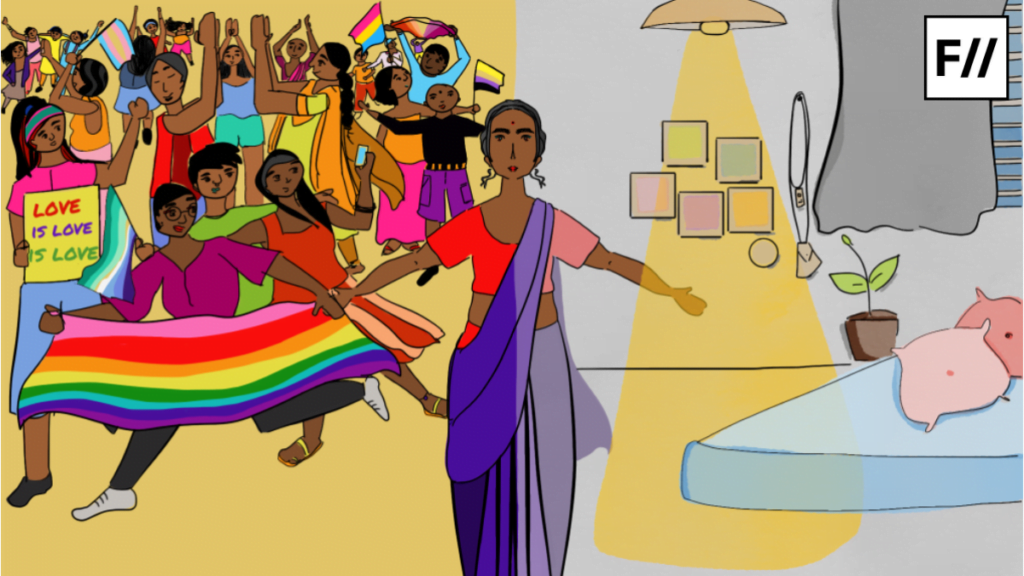
As I walked down roads that I had often traversed in cars with a throng of people whose joy drew in stares from curious passers-by for the first time I felt a sense of family. I didn’t need to know the thousands of people around me to laugh with them, to dance with them, to march with them, to compliment each other on our flamboyant sartorial choices, or to shout “naaras of azaadi” in unison till our voices went hoarse.
Also Read: The History Of Pride Parades In India
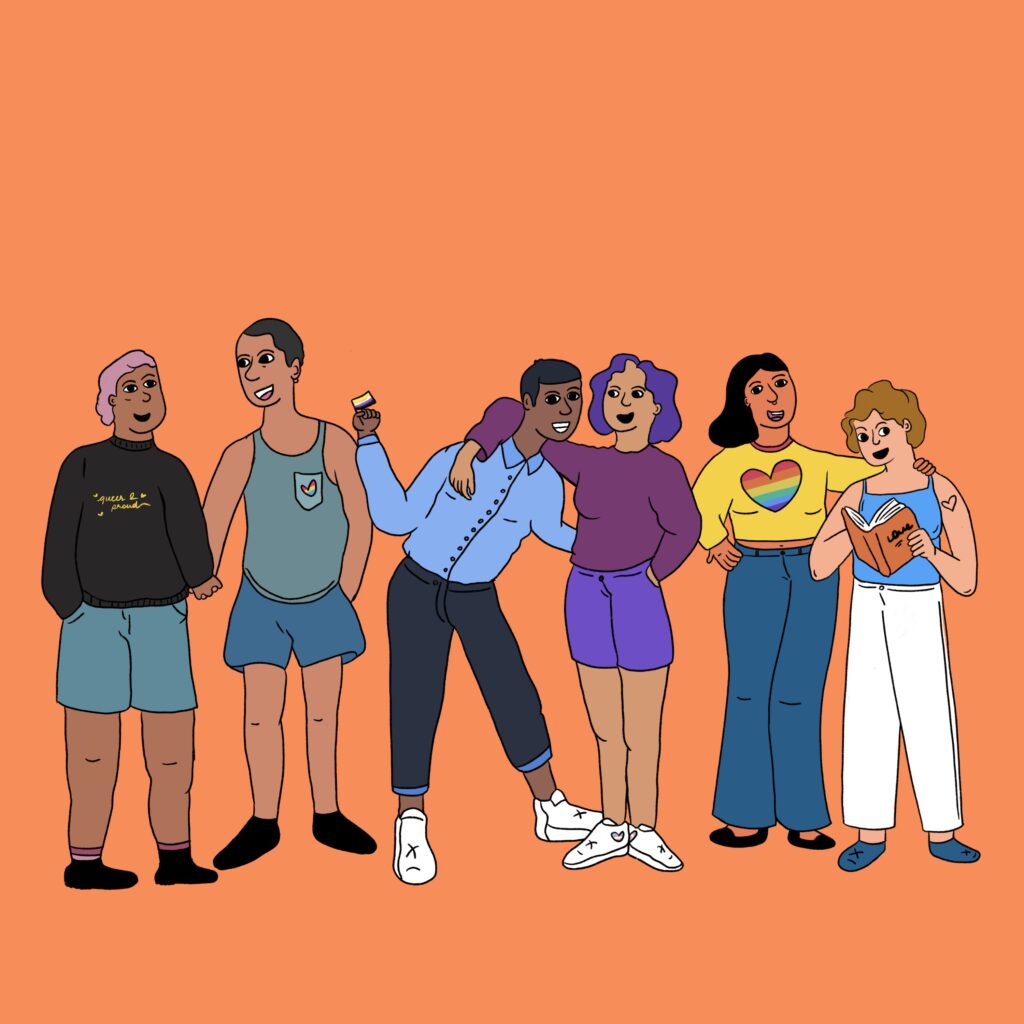
The power of reclaiming the public space was so incredibly invigorating for someone like me who has always felt hypervigilant in crowded environments. I would later find out that the route that went from Park Circus Maidan to Park Street, was originally followed on the first ever Pride Walk that was ever held in India. In that milieu of a wide spectrum of people, I felt like always belonged, and Pride was just my path to that epiphany.
My road to joining my first Pride Parade might have been a long, winding one, but it confirms my belief that the acceptance, solidarity and joy of queer spaces is the antidote we all need and deserve to break out of the stifling structures of hetero-patriarchy.
